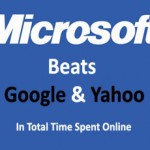 Redmond, Washington — Striving to strengthen its medical pedigree, software behemoth Microsoft Corp. is ready to debut an online video series, “Health Tech Today,” describing the developments in the health care technology field, beginning tomorrow Nov. 10.
Redmond, Washington — Striving to strengthen its medical pedigree, software behemoth Microsoft Corp. is ready to debut an online video series, “Health Tech Today,” describing the developments in the health care technology field, beginning tomorrow Nov. 10.
The forthcoming show will concentrate on how health and information technology run across. Microsoft’s cloud-based storage facility for patient information, HealthVault, is just one of the health care IT-related programs and products that companies ranging from Google and Intel to Oracle have been pushing into the public sphere.
The show’s entertainer, Bill Crounse, senior director of worldwide health at Microsoft, is a seasoned of both mass communication medium and medicine, having acted as an announcer and practicing physician prior to joining Microsoft. In a chat on Friday, Crounse assured that the show itself wold not be an ad for Microsoft’s health care software, though the company is sponsoring the first few episodes with some short commercials.
“It is about presenting our investment and commitment to the industry and wanting to be seen, obviously, as a player and a thought leader,” Crounse said. The original idea was for a 10-minute show, though the first episode, set to be broken up into six chapters, debuting November 10, ended up lasting for 45 minutes.

Bill Crounse (Credit: Microsoft)
While elaborate information about the show remains largely under wraps, Microsoft posted a video trailer for the show on the Microsoft HealthBlog. Although inauguration and products such as Windows 7 and Xbox dominate most of the media’s attention, Microsoft has been working to make healthcare IT a pillar of its overall corporate strategy.
In June, Microsoft informed that it was making alliances with the American Medical Association to give physicians access to patent records stored on Microsoft’s HealthVault application via a Web-based portal. That followed an April announcement that the Mayo Clinic, working with Microsoft, would use HealthVault technology as the foundation for the Mayo Clinic Health Manager, which would allow patients to upload data from home health devices and receive reminders about their medical care.
Among other invitees are Nobel Peace Prize winner Desmond Tutu, who speaks about the function technology can play in spreading out the reach of health care to the masses.
The federal government considers cloud computing as a novel way to help streamline the U.S. health-care system. During a keynote address at the CEA Line Shows conference in June, the nation’s first-ever chief technology officer, Aneesh Chopra, talked about the need to "bring innovation platforms" and the cloud to bear on issues such as healthcare IT.
“I’m mesmerized by the idea that we can interconnect all sorts of things that we never connected before,” Chopra said.
Additionally, Cornelia Ruland, a nurse in Norway who devised a video game for acutely ill young children that serves them better communicate their experience.
Crounse said the objective is to tell stories to which people can relate. Another section in the first show concentrates on a service called MyHalo, which Chris Otto launched after his own family’s experience handling an elderly relative.
“We are investing as profoundly in health and health care as anything else these days,: Crounse said, noting that Microsoft has gone from having 20 people focused on health care to more than 1,000 people since the time he has been with the company. The company’s main products include its HealthVault personal health record and its Amalga products, which health systems can use to coordinate their data.
Companies ranging from Intel to Oracle have also attached themselves into the health-care IT space, either through acquiring smaller startups or introducing their own products, demonstrating in the process that the tech sector views health-care as a potentially lucrative revenue stream.


